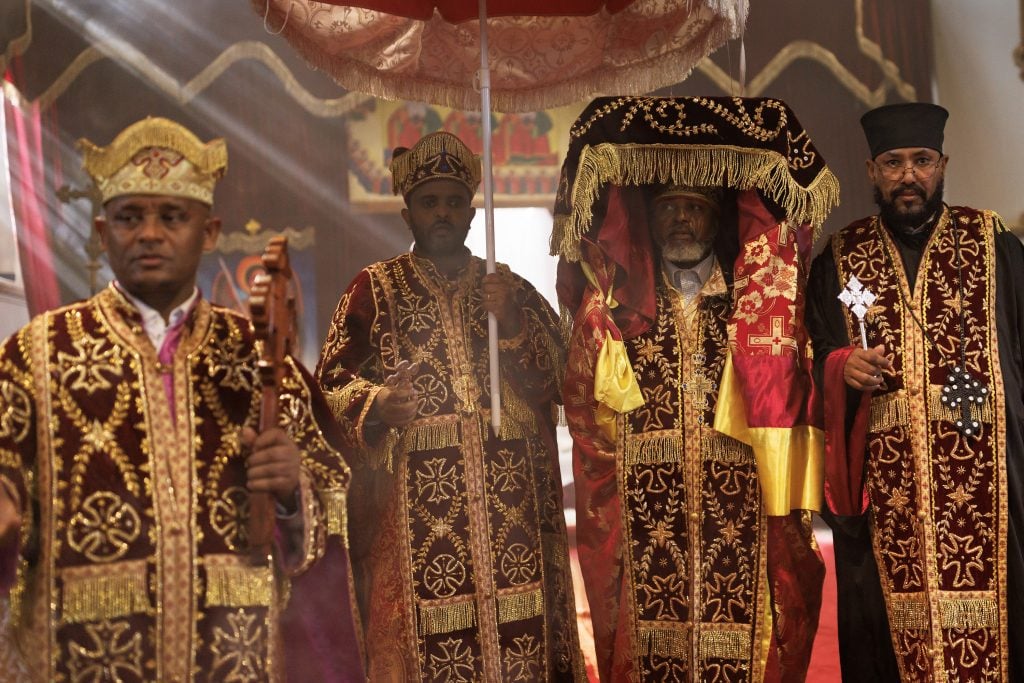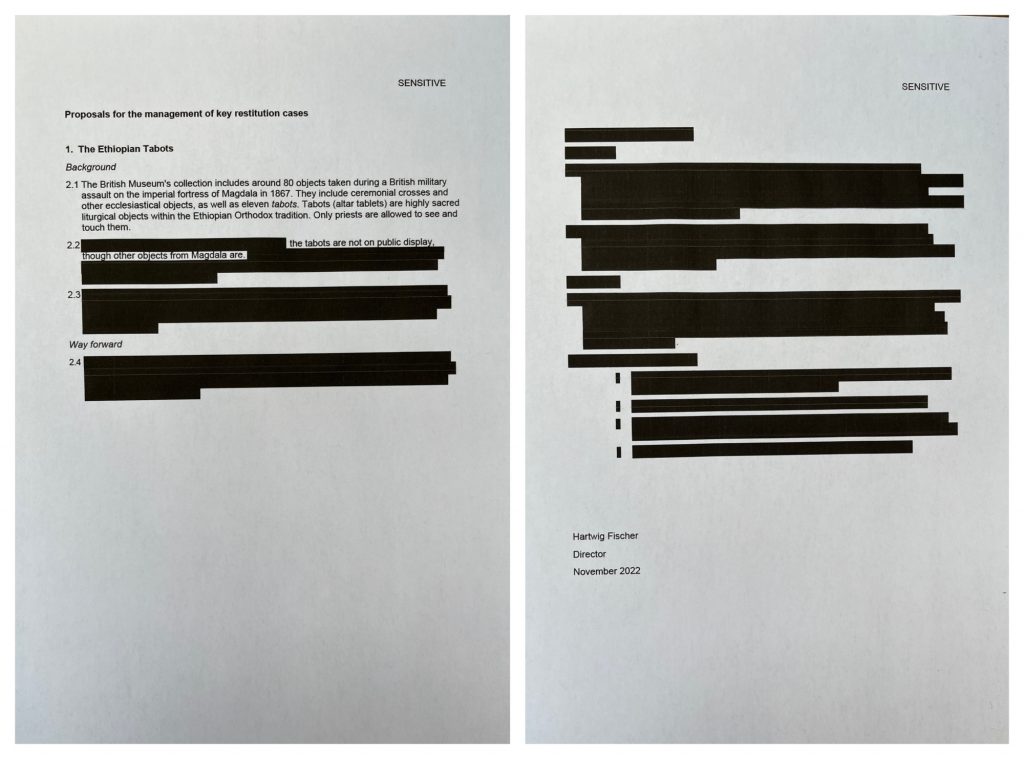Museums & Institutions
British Museum Under Investigation Over Looted Ethiopian Artifacts
In 1868, a British Museum employee accompanied a military attack that devolved into the looting of cultural property.

In 1868, a British Museum employee accompanied a military attack that devolved into the looting of cultural property.

Jo Lawson-Tancred

The British Museum has been accused of concealing information about a group of contested Ethiopian artifacts that were looted by British soldiers after the Battle of Maqdala in 1868. The 11 tablets, known as tabots, are sacred objects and, for this reason, they have not been put on public display in roughly 150 years. Ethiopia’s culture minister Hirut Kassaw requested their return in 2019 during an informal discussion with ex-director Hartwig Fischer.
Returning Heritage, a nonprofit online resource that gathers information about contested cultural artifacts and restitution claims, submitted a Freedom of Information (FOI) request to the British Museum in August 2023, according to a report in the Guardian. It asked to see records relating to internal meetings during which trustees discussed the tabots in order to determine the institution’s justifications for not repatriating the objects.
Returning Heritage claimed that the materials it received were incomplete and, in places, excessively redacted. The organization then submitted a second request but the British Museum upheld its initial report. Returning Heritage has now submitted a complaint to the Information Commissioner’s Office (ICO) to open an official investigation.
“It seems very strange that the museum would not wish to explain why they’re holding on to objects that they can return,” Lewis McNaught, managing editor of Returning Heritage, told the Guardian. He added that there is “genuine public interest” in knowing “why the museum will not explain why they’re not returning them.”

Two documents sent to Returning Heritage in response to a Freedom of Information request made in August 2023. Most of the text has been redacted. Photo: Returning Heritage.
The British Museum declined to comment on this allegation, but noted that the tabots are made available to be visited by Ethiopian Orthodox priests. For some years, it has publicly stated that it hopes to eventually lend the tabots to an Ethiopian Orthodox church in the U.K.
Tabots are altar tablets that symbolically represent the Ark of the Covenant and the Ten Commandments. They are used to consecrate an Ethiopian Orthodox church and can only be seen by the priest.
The British Museum’s wood and stone tabots are part of its Maqdala collection of some 80 cultural objects that it open admits were looted in 1868 from Maqdala, the fortress and seat of power for Emperor Tewodros II. After Tewodros took several Europeans hostage, the British launched a brutal military attack that destroyed the fortress. Soldiers then seized any valuable objects they could find as spoils of war.
This opportunistic looting seems to have been at least partly premeditated due to the fact that the archivist Richard Holmes, an employee of the British Museum’s department of manuscripts, was sent on the expedition in an official capacity. He acquired a trove of Ethiopian treasures auctioned by the soldiers and these were transferred to the British Museum that same year. Further items were bequeathed by Captain Speedy, a British explorer also involved in the battle.
In 2002, a former director of the British Museum, David Wilson, wrote “one of the less glorious episodes in the history of the museum, in today’s terms, was the trustees’ involvement in the punitive expedition to Abyssinia [Ethiopia].”
The British Museum is barred from deaccessioning its holdings by the British Museum Act of 1963 but there a few exceptions, including if the object is “unfit to be retained” and its loss would not be a “detriment to the interests of students.” Returning Heritage hope that the 11 tabots may meet this criteria since they are never exhibited or studied due to their highly sacrosanct status.
Other institutions that are not bound by the British Museum Act have begun repatriating objects that were looted during the Battle of Maqdala. Earlier this year, Westminster Abbey agreed to return a tabot to Ethiopia after taking advice from the King. In 2021, the nonprofit Scheherazade acquired a group of artifacts with the explicit intention of returning them to Ethiopia. The country recently called for a U.K. auction house to cancel the sale of a shield that was also pillaged in 1868.